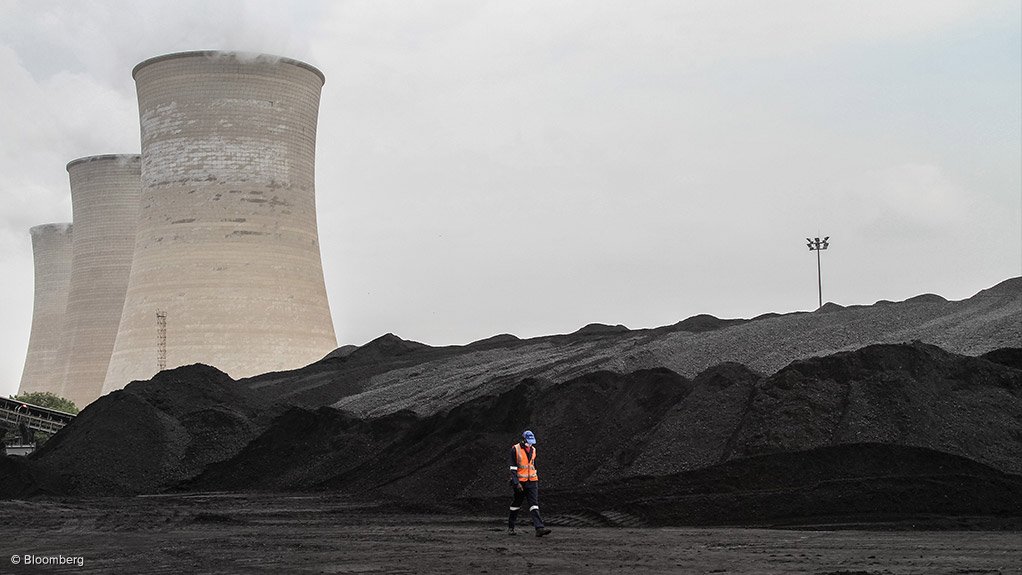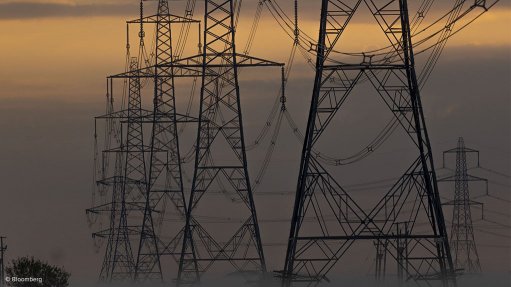Panel urges responsible coal phase-out
The business community of South Africa, including coal miners, coal processors and unions, shares the sentiment that the just energy transition must be implemented in a responsible manner if the country is to reach carbon neutrality and not damage the economy.
Sasol Mining senior VP Lucky Kgatle says the company sees the energy transition as a national and global imperative.
Parent company Sasol is aiming for the group to achieve an 80% reduction in emissions by 2030, and ultimately achieve net zero by 2050.
“Net zero carbon emissions by 2050 is necessary if we are to stay within the 1.5 ˚C world temperature rise window set by the Paris Agreement and avoid catastrophic climate change at a global scale.
“Considering that Sasol is the second-largest emitter after Eskom, we have a responsibility to lead a change to a low-carbon future.”
Kgatle acknowledges that South Africa is a developing country and that it requires a just energy transition to not leave behind displaced jobs and livelihoods.
That said, Sasol still sees coal as an integral part of the energy mix for the foreseeable future, before progressively declining.
Sasol has intentionally designed its decarbonisation strategy to allow for a just transition to lower-carbon feedstocks such as gas and green hydrogen over time. The company is also taking care to respond to air-quality concerns and greenhouse-gas emissions management – including by using more liquefied natural gas and optimising boiler technology.
“While we do not foresee significant employment reduction prior to 2030, there will thereafter be impact and hence our setting up of a dedication transition office, which is already undertaking programmes to minimise negative impacts that will come with such a transition strategy,” Kgatle states.
He believes it is crucial for renewable energies and hydrogen development programmes, for example, to be accelerated at government level to activate economic activity and create jobs to help offset losses posed by the shift away from coal.
Seriti Resources CEO Mike Teke, meanwhile, acknowledges that the carbon emissions from burning fossil fuels have a huge impact on humanity.
“We are not climate denialists at all, we understand our responsibility as coal miners to mine coal responsibly to ensure that we drive zero harm and ensure we fulfil our obligations toward environment, social and governance aspects.
“With coal being a fossil fuel, we accept there are opportunities for us, as humanity, to look at driving a just energy transition, but in a responsible way. The Integrated Resource Plan envisions a coal reduction of more than 70% in terms of electricity generation as baseload. We cannot, therefore, as a miner ignore that.
“However, as we progress, it should be acknowledged that 13 coal-fired power stations cannot be shut down overnight.”
Teke adds that there are more options than simply closing down coal assets, including carbon capture and storage, which can be applied in many industries. He motivates that a transition to cleaner energy should not come at the expense of communities, their jobs and their livelihood.
From a global perspective, National Business Initiative CEO Joanne Yawitch notes that the push to achieve carbon neutrality by 2050 is real and that pressure in this regard is mounting.
Even China, which is a large coal user itself, recently decided to no longer finance any new coal projects globally, and the country is targeting carbon neutrality by 2060.
The issue of competitiveness is also coming to the fore, Yawitch mentions, explaining that South African exports have a high degree of embedded carbon, this while there are talks of border tax adjustments in relation to exports to assess embedded carbon and exercise trade tariffs accordingly.
“South Africa will certainly be impacted by global changes and the pressures are quite significant, which pose a number of key opportunities. We have 30 years to plan a coal phase-out; we can avoid the catastrophes seen in other sectors such as gold mining with sudden closures and massive job losses.
“We can manage this transition in a planned way to ensure that communities livelihoods are not decimated. We also have the opportunity to reinvest in mineral exploration and leverage our coal mining and trading expertise to produce minerals of the future.”
Yawitch adds that, as the world nears 2050, coal will be a commodity in limited supply around the world and that, in itself, is an opportunity for local coal miners, simply because there will still be some demand for coal around the world.
Congress of South African Trade Unions labour market policy coordinator Lebogang Mulaisi says transitions are already under way, coming from various national-level agreements around the world. “We need to approach the conversation with that in mind, recognising that the transition is not coming, but happening already.
“There are risks of displacement of jobs looming, but the risk of doing nothing is probably more adverse. At some point countries will start taking carbon budgets into consideration when trading with other nations, which is a serious consequence for the economy.”
Mulaisi adds that, sometimes, people think the Paris Agreement can be dodged, but it cannot and it requires planning and strategizing. She says the country knows what the global targets are, and it should not be doing nothing for the next 30 years and be left behind.
“The mining sector is often considered as the biggest loser in the just transition, but the preparation for a just transition could prove otherwise - there are major mineral resource and technology opportunities to provide new jobs if given the time and work.
“Engage with workers on future opportunities, get their input and better collaborate so that we can get these plans up and running,” she urges employers and government.
*The speakers participated in a panel discussion hosted during Joburg Indaba on October 7.
Comments
Press Office
Announcements
What's On
Subscribe to improve your user experience...
Option 1 (equivalent of R125 a month):
Receive a weekly copy of Creamer Media's Engineering News & Mining Weekly magazine
(print copy for those in South Africa and e-magazine for those outside of South Africa)
Receive daily email newsletters
Access to full search results
Access archive of magazine back copies
Access to Projects in Progress
Access to ONE Research Report of your choice in PDF format
Option 2 (equivalent of R375 a month):
All benefits from Option 1
PLUS
Access to Creamer Media's Research Channel Africa for ALL Research Reports, in PDF format, on various industrial and mining sectors
including Electricity; Water; Energy Transition; Hydrogen; Roads, Rail and Ports; Coal; Gold; Platinum; Battery Metals; etc.
Already a subscriber?
Forgotten your password?
Receive weekly copy of Creamer Media's Engineering News & Mining Weekly magazine (print copy for those in South Africa and e-magazine for those outside of South Africa)
➕
Recieve daily email newsletters
➕
Access to full search results
➕
Access archive of magazine back copies
➕
Access to Projects in Progress
➕
Access to ONE Research Report of your choice in PDF format
RESEARCH CHANNEL AFRICA
R4500 (equivalent of R375 a month)
SUBSCRIBEAll benefits from Option 1
➕
Access to Creamer Media's Research Channel Africa for ALL Research Reports on various industrial and mining sectors, in PDF format, including on:
Electricity
➕
Water
➕
Energy Transition
➕
Hydrogen
➕
Roads, Rail and Ports
➕
Coal
➕
Gold
➕
Platinum
➕
Battery Metals
➕
etc.
Receive all benefits from Option 1 or Option 2 delivered to numerous people at your company
➕
Multiple User names and Passwords for simultaneous log-ins
➕
Intranet integration access to all in your organisation





















